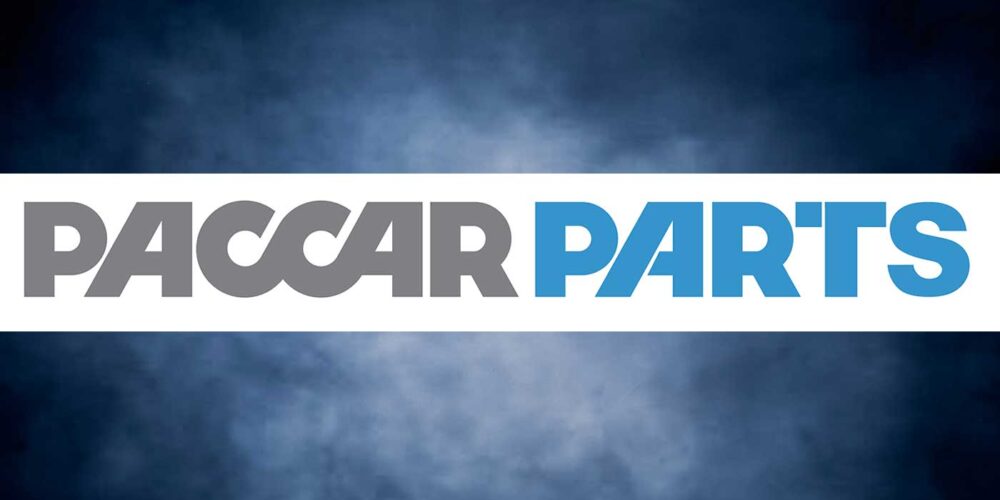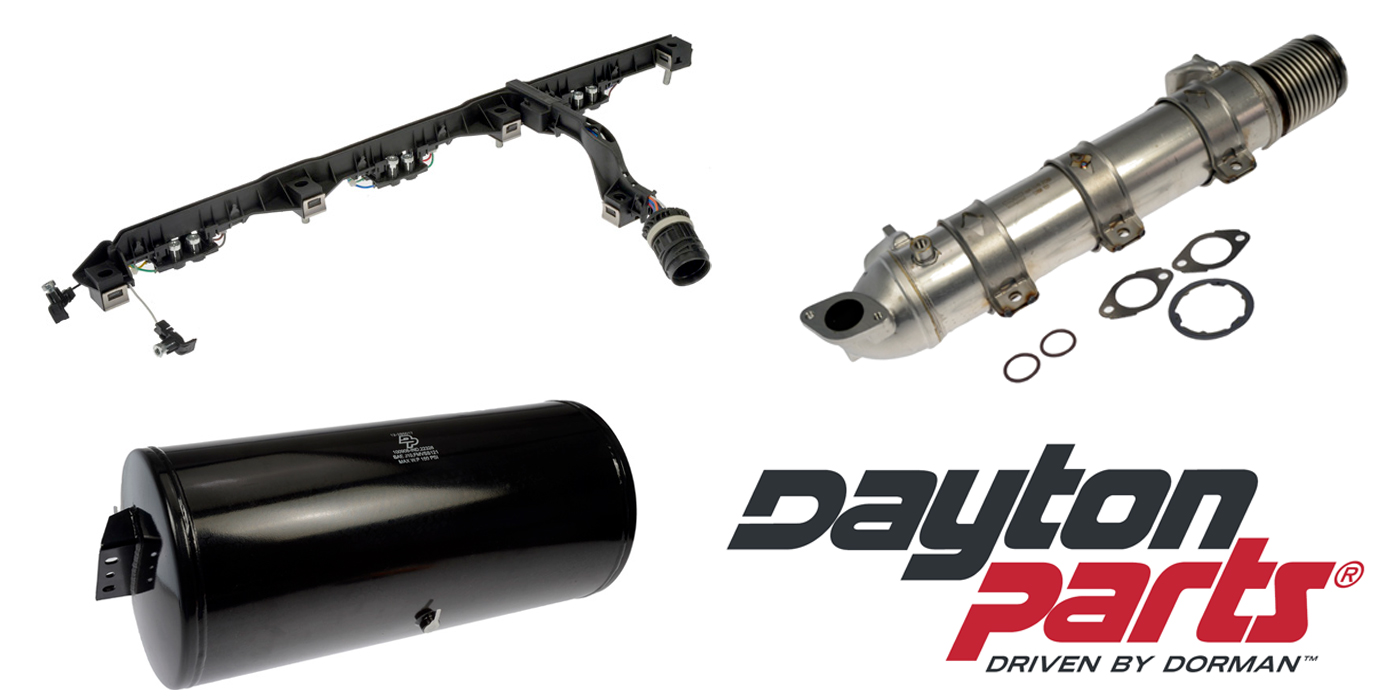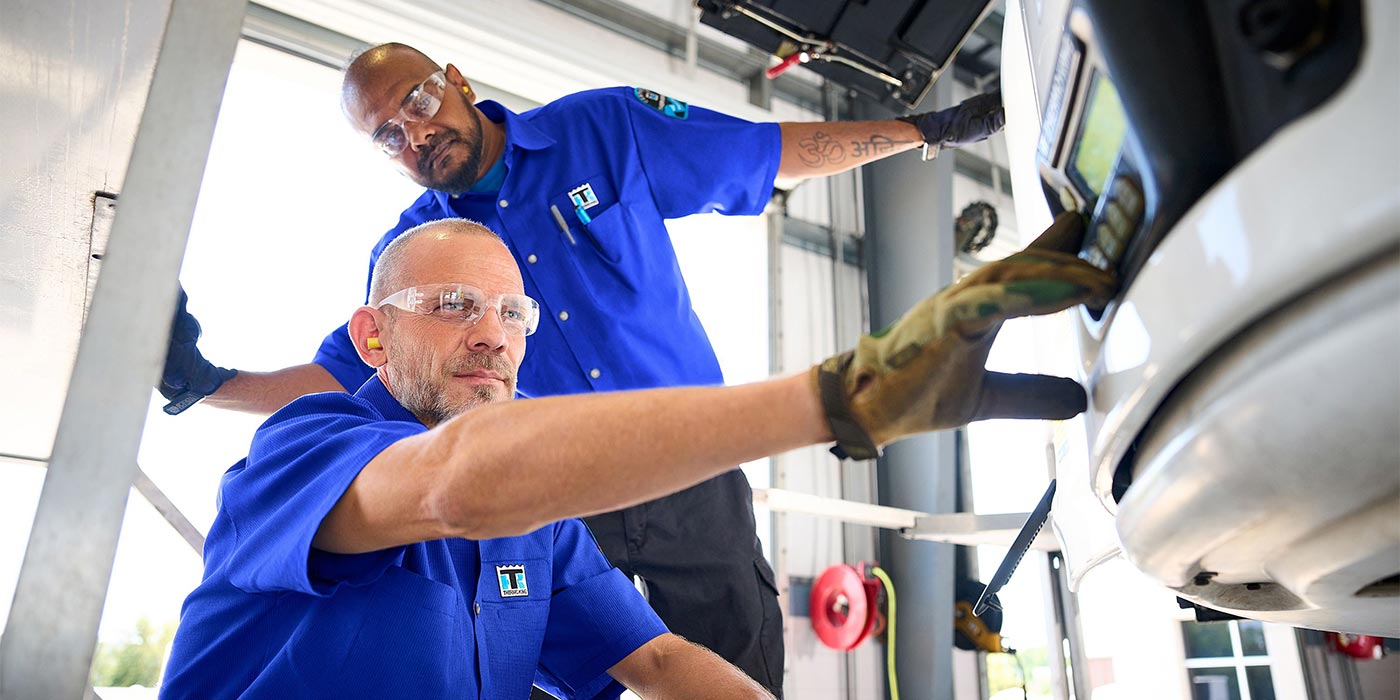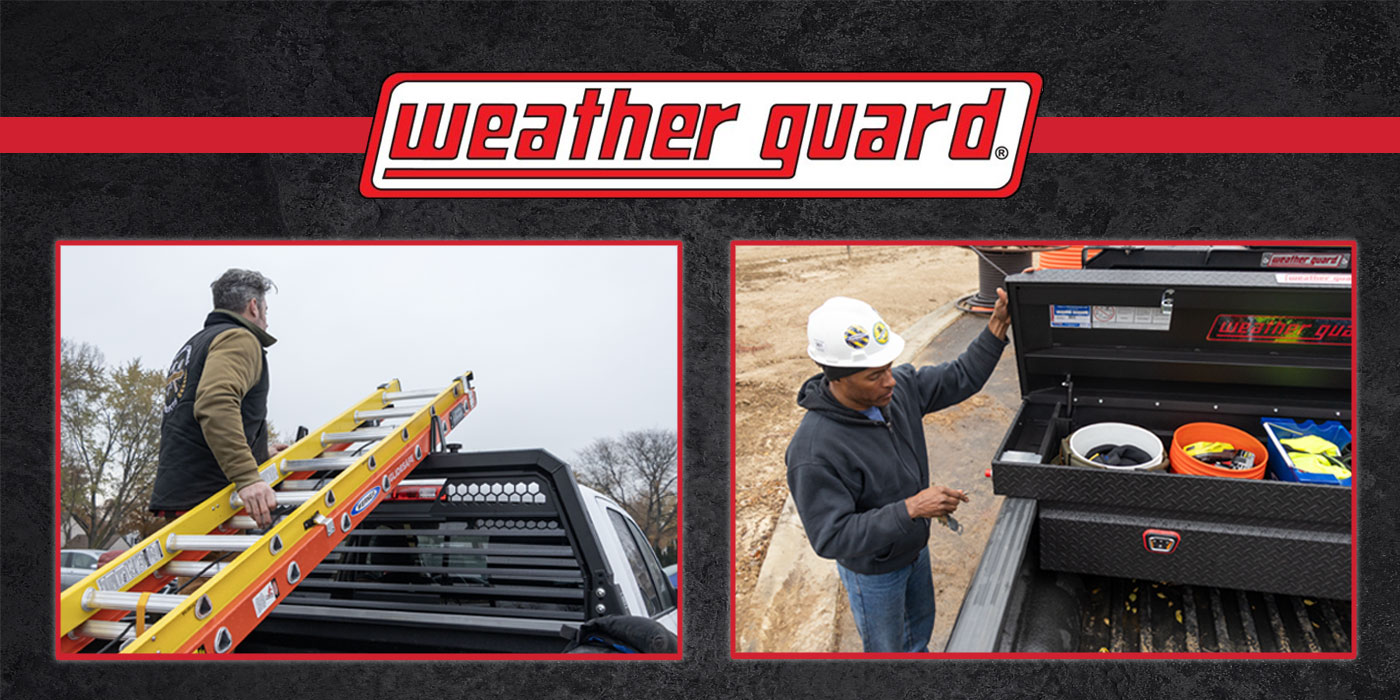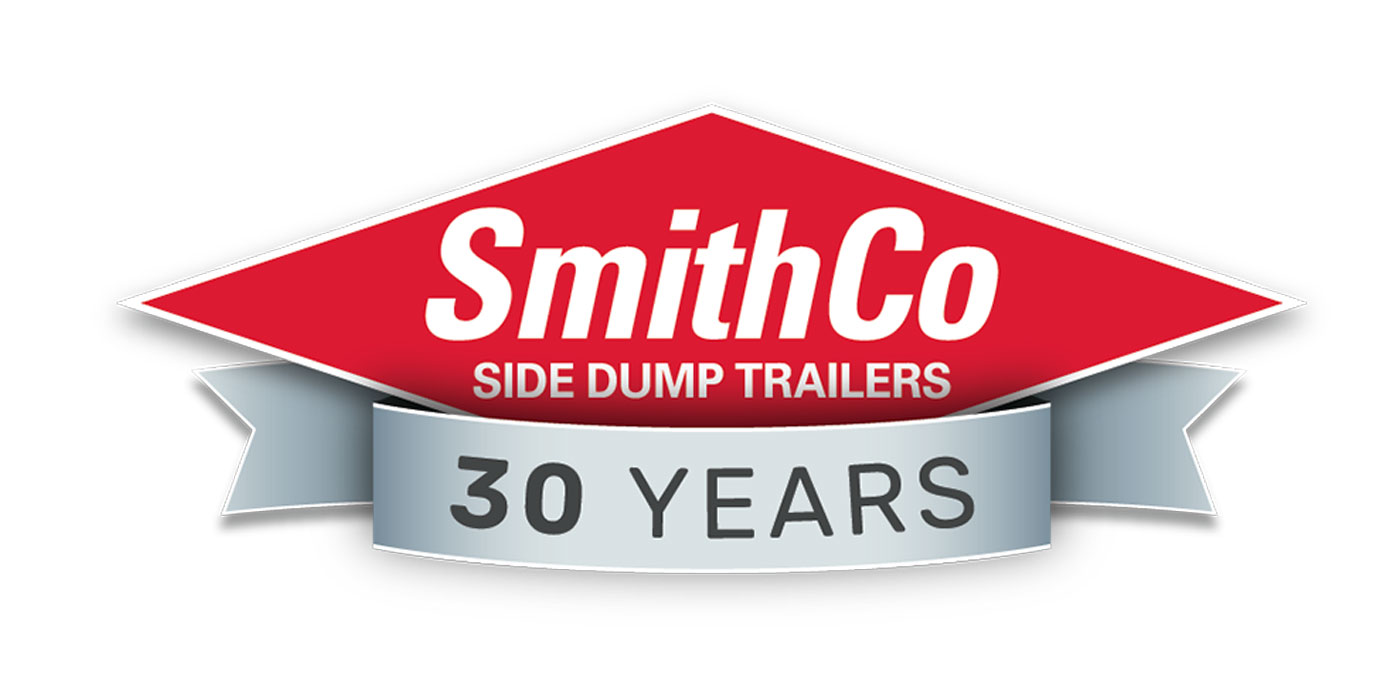There are a myriad of coolant options available for fleets today. You can spec Organic Acid Technology (OAT) coolant; extended life coolant; nitrite-free coolant; coolant with nitrites; mix different types of coolant; and there are plenty of other options as well. Keeping all these options straight can be difficult, not to mention making sure the right coolant ends up in the right truck. So here are three industry trends in coolant, and what fleets need to know about them.
Trend 1: OAT coolants
OAT coolants, which are made up of organic materials, provide protection of the cooling system components and longer life for the coolant, and are growing in popularity. OAT coolants specifically target corrosive sites, providing better heat transfer. Due to their use of organic materials—and lack of silicates, phosphates and nitrites—they are also more accepted as an environmentally friendly solution.
“Robustly formulated OAT coolants can offer extended life performance without the need to re-inhibit with supplemental coolant additives [SCA],” says John Turney, technical director for Peak Commercial and Industrial, “therefore, many fleets should see a reduction in application maintenance requirements.”
“Today, with the sophistication of new engine platforms to meet emissions and MPG goals, there is a general need to move from the older ‘green’ coolants, to the better formulated and performing coolants, such as those with OAT,” says Colin Dilley, vice president of technology at Prestone Products Corp. “Having said that, you should select a coolant that provides engine protection for the desired service intervals and climatic conditions, and never mix coolant types. You also want a coolant that defends against corrosion of modern engine platform metals, including aluminum and extreme temperatures that can stress an engine. Also, always use coolant from a reputable source to ensure that you avoid issues.”
“In the past, you wouldn’t use the same coolant in a gas and diesel engine because of cavitation or liner pitting,” says Stede Granger, OEM technical services manager for Shell Lubricants. “Special protection was needed to protect against liner pitting in a diesel engine. Now with high-performing OAT coolants, that is not necessarily the case. Shell Rotella extended life coolant [ELC] NF, which is nitrite-free, can be used in diesel and gasoline engines.”
“OAT coolants enable fleets to use one coolant type and that translates to significant cost savings,” Dilley adds. “There is no need to use SCAs and service intervals are extended, reducing labor, parts and overall downtime.”
According to Granger, while periodically checking the system is necessary, going several hundred thousand miles trouble-free is common when using OAT coolants.
Trend 2: Nitrite-free coolants
Nitrite-free coolant continues to gain ground. So why is this happening, and what are the benefits for trucks?
“The trend is driven by OEM requirements, particularly with those making heavy- and medium-duty trucks with aluminum engine components,” Granger says. “They experienced nitrite aluminum reactions and associated issues with OAT coolants with nitrite. Under severe conditions, the corrosion can be significant with nitrite coolants reacting with aluminum radiators and heater cores. Shell expanded its coolant offering to include nitrite-free Shell Rotella ELC to meet the needs of fleets.”
The lack of nitrites in this type of coolant means the cooling system is protected without the need to add and replenish nitrites.
“Nitrite-free coolants provide the ability to have one fluid suitable for all vehicles in a mixed fleet,” Prestone’s Dilley says. “Additionally, there have been concerns from about certain nitrited OAT coolants that have shown some instability, resulting in pH drift, precipitation and blocked heat exchangers. Newly developed nitrite-free OAT coolants, such as Prestone Command Heavy Duty Nitrite Free Extended Life, have been designed to avoid those issues and provide optimum corrosion protection for modern engines and manufacturing techniques such as CAB brazing.”
“Applications that do not use aluminum heads or cores can still utilize nitrite-containing coolants, while applications that use aluminum should consider using nitrite-free chemistry to prevent the nitrite reduction reaction, as it seems to be difficult for core manufacturers to remove the flux residue from the cores after construction,” Peak’s Turney advises. “It is always recommended that the customer follow the OEM requirements for their specific application.”
Trend 3: Extended Life Coolant (ELCs)
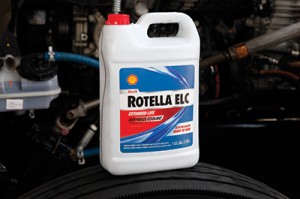 ELCs are designed to last for at least 300,000 miles without any chemical supplementation, but if they are diluted with additional water/conventional coolants, these benefits are compromised.
ELCs are designed to last for at least 300,000 miles without any chemical supplementation, but if they are diluted with additional water/conventional coolants, these benefits are compromised.
“ELCs provide benefits over conventional fully formulated coolants, which include helping to maximize water pump life, reducing hard-water-scale deposits and eliminating silicate gel [the green liquid you sometimes see],” Shell’s Granger explains. “They typically utilize OAT corrosion inhibitors that protect cylinder liners from pitting corrosion damage. ELCs can help reduce maintenance costs and improve water pump life, as well as eliminate the need for supplemental coolant additives.”
However, Granger warns, “mixing of conventional fully formulated coolant with ELC or ELC with conventional fully formulated coolant reduces the effectiveness of the corrosion inhibitor in both products, and if a coolant becomes diluted with a different type of coolant, its ability to provide cooling system component corrosion protection may be greatly reduced.”






